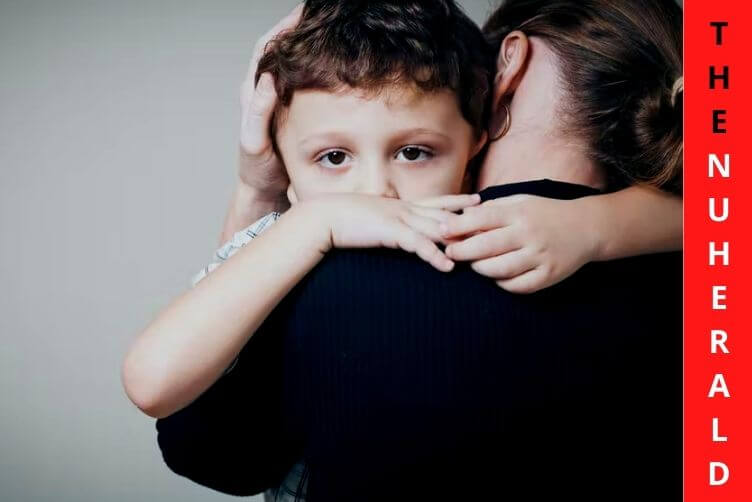Imagine walking from office to home and you forget the path, or you stumbled over words saying ‘white’ even though you actually meant black, or you can’t remember your best friend’s name even though they had been with you through thick and thin.
These things are not concerning for many when it comes to octagenarian people. A healthy body and a healthy mind become inefficient with age and things like physical abilities, eye sights, sensory perceptions, and memory become less efficient and reliable.
Dementia In Youngs- The Challenges And Concerns
But what if these symptoms are seen most often in young adults- people in their 30s, 40s, and 50s? These things would be perhaps far more concerning for many.

According to the reports published on Lancet Public Health, 5.3 million Americans over the age of 65 and some 2,00,000 Americans younger than 65 are currently affected by Alzheimer’s or some sort of dementia- serious memory and thinking disorder issues.
According to the studies published in JAMA Neurology in September, for every 10,000 people aged between 30-64, 119 had early dementia.
Dementia- A Concern?
Dementia is a progressive decline of memory which is not a normal part of aging, which causes loss of memory, reasoning and affects the cognitive abilities of a person like a language, thinking abilities, behavior, or judgment.
Dementia is not a specific disease but several diseases can cause dementia. Alzheimer’s disease is most;y responsible for progressive dementia in older adults- especially octagenarian people.
A person suffering from dementia might have a hard time doing everyday activities like taking bath, dressing, feeding, driving, or carrying out other household chores.
According to WHO, approximately 47 million people worldwide are currently suffering from dementia and this number is projected to grow to 75 million by 2030- 10 million cases every year!
Symptoms And Early diagnosis Of Dementia
For many people, the symptoms in the early stages closely resemble Alzheimer’s disease and the early symptoms include- Forgetting newly learned things, losing track of your location and how you reached there, issues in solving basic problems, trouble finding the right words in conversation most often, changes in mood and personality, etc.
According to Dr. David S. Knopman, a neurologist at the Mayo Clinic in Rochester, Minn., the diagnosis of early-stage dementia is quite complex, detailed, and time-consuming requiring questions related to complete medical history starting from the family line.
A thorough cognitive analysis of a person’s memory and language difficulties is critical. It could be the case that a person might be forgetting the right words in the conversation, face issues in remembering newly learned information, or might stumble over words when he actually meant to say something else.
Similarly, if there is a tumor that is causing the cognitive symptoms then a person will need a brain scan. Elevated levels of tau and beta-amyloid proteins in the brain can be diagnosed with a spinal tap and analysis of Spinal fluid. Shrinkage in the brain causing cognitive symptoms can be diagnosed with M. R.I.
However, to distinguish between Alzheimer’s, Lewy body dementia or frontotemporal dementia all one needs is a glucose PET scan where this dementia can be distinguished by observing the abnormal sugar intake in various parts of the brain.
Causes Of Dementia
According to recent studies published in JAMA Neurology in September, the most common cause of young-onset dementia is Alzheimer’s disease.
However, if the dementia is occurring at a younger age in the 30s, 40s, or 50s then the most possible reason is Vascular dementia, frontotemporal dementia, or a Lewy body disease.
Vascular dementia occurs when the vessels that supply blood to the brain are damaged. This dementia can cause stroke or can damage the fibers in the white matter of the brain. Studies suggest that the most common symptoms of Vascular dementia are slow thinking, lack of concentration and organization, and perhaps issues in problem-solving. Vascular dementia can be more easily noticed than memory loss.
Frontotemporal dementia on the other hand occurs when there is a breakdown of nerves cells and their connections in the frontal and temporal lobe of the brain. A person having frontotemporal dementia experiences changes in personality, behavior, language, and movement.
In Lewy body disease, balloon-like clumps of proteins are formed in the human brain. It is one of the common types of progressive dementia. A person affected by Lewy body disease might experience visual hallucinations, lack of focus and attention, parkinsonism, slow movement, tremors, and rigidity. According to Dr. Knopman, a person suffering from Lewy body dementia has violent dreams they might attempt to act out.
In younger people, among all the factors which increase the risk of dementia and early age, sports or accident related to head injury is the most serious one. Playing soccer which involves repeatedly heading the ball or an accidental kick by the player on the head, professional boxers getting punched in the head and face time and again, or a military veteran who had multiple head injuries in the past.
In adults, atherosclerosis, the clogging and hardening of the arteries that nourish the heart, can also affect blood vessels that feed the brain. Diabetes and heart disease can also affect brain function and promotes dementia.
Conclusion
No matter, if it’s a young or an octogenarian, keeping everyone safe from dementia, should always be the priority. A person affected with dementia should not be allowed to drive, operate dangerous equipment, or be left alone.
Keeping in mind the complexities of the symptom and diagnosis, the best solution is going defensive. Using headgears when playing sports or riding a bike, keeping the body healthy through proper diets and exercise can keep those brain cells healthy because once those brain cells are lost, it’s irreversible!